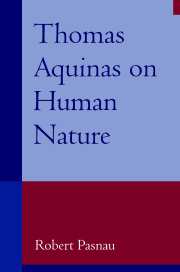Book contents
Epilogue: Why Did God Make Me?
Published online by Cambridge University Press: 05 June 2012
Summary
What is man, that thou art mindful of him?
Psalm 8,4/5Though Copernicus has been dead for over 450 years, we continue to place ourselves at the center of the moral universe. According to the great moral theories of our time, it is we human beings who are the measure of good and evil. For Mill, our pleasure is “the ultimate end, with reference to and for the sake of which all other things are desirable” (Utilitarianism, p. 262). For Kant, all of morality can be derived from the principle that human beings should be treated “never merely as a means, but always at the same time as an end” (Groundwork, p. 38). The present Catholic Pope gives voice to an almost universal assumption, across religions and cultures, when he speaks of “the incomparable value of every human person” (John Paul II, 1995; see §4.3 at end).
None of these accounts limits the scope of morality to human beings. Mill allows that the pleasure of other animals might carry some moral weight. Kant thinks that his categorical imperative applies to all rational beings that might exist. The Pope takes the value of human life to derive from God. But these three very different thinkers all agree in the absolute value they place on humanity. Though they clash dramatically in their evaluations of what the good for human beings consists in, they agree in giving us an ultimate standing in the moral calculus.
All this would have been quite foreign to Thomas Aquinas.
- Type
- Chapter
- Information
- Thomas Aquinas on Human NatureA Philosophical Study of Summa Theologiae, 1a 75-89, pp. 394 - 404Publisher: Cambridge University PressPrint publication year: 2001



